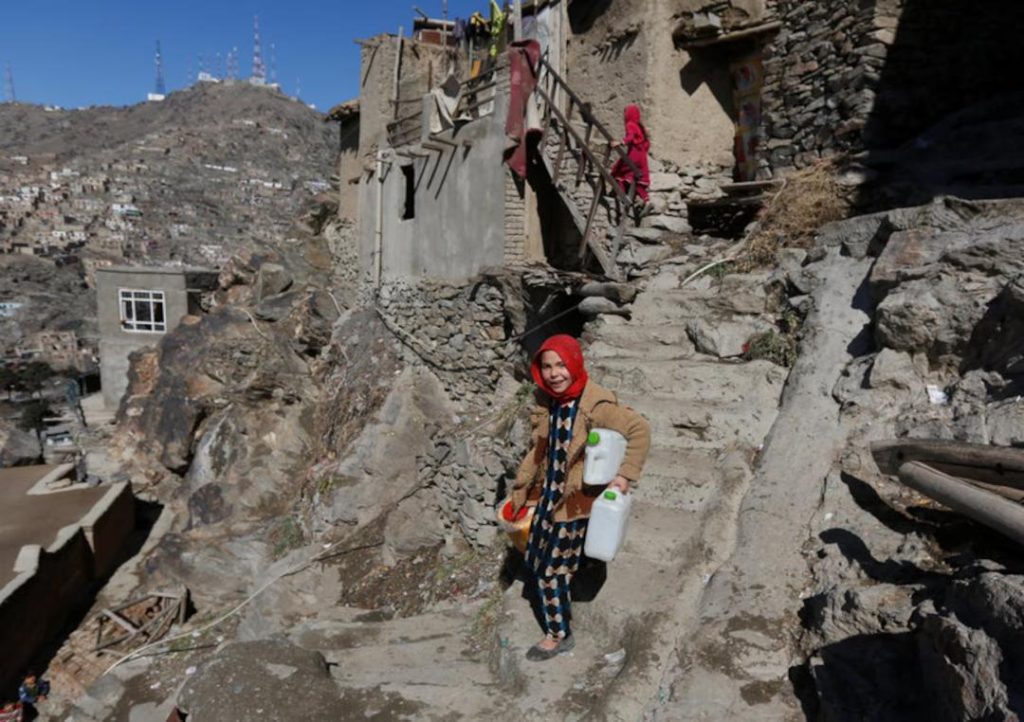
Kabul may become first modern city to run out of water: Report
As the world grapples with the challenges of climate change, environmental degradation, and urbanization, a new report has highlighted a dire situation that could have catastrophic consequences: Kabul, the capital of Afghanistan, may become the first modern city to completely run out of water.
According to a report by the non-governmental organization (NGO) Mercy Corps, Kabul’s groundwater extraction has exceeded its natural recharge, leaving the city’s water supplies in crisis. The report, which was released earlier this year, paints a stark picture of a city on the brink of a water disaster.
One of the most alarming statistics cited in the report is that nearly half of Kabul’s boreholes are already dry, indicating a severe depletion of the city’s underground water reserves. What’s more, nearly 80% of the groundwater in the city is unsafe for human consumption due to high levels of sewage and arsenic contamination.
The report suggests that if current trends continue, Kabul could run completely dry by 2030. This would have devastating consequences for the city’s estimated 4.5 million residents, who rely on groundwater for their daily needs.
The issue is not just a matter of convenience or comfort; it’s a matter of life and death. Water scarcity can lead to increased mortality rates, particularly among children, the elderly, and those with compromised immune systems. It can also lead to increased conflicts over resources, as communities are forced to compete for dwindling water supplies.
So, what’s driving this water crisis in Kabul? According to the report, it’s a combination of factors, including:
- Over-extraction of groundwater: Kabul’s rapid population growth and urbanization have led to a surge in demand for water, which has been met by indiscriminate extraction of groundwater from the city’s underlying aquifers.
- Lack of infrastructure: The city’s water infrastructure is aging and inadequate, making it difficult to collect, treat, and distribute water efficiently.
- Climate change: Changes in precipitation patterns and increased temperatures are altering the natural recharge rates of Kabul’s aquifers, making it even more difficult to sustain the city’s water needs.
- Poor governance: Corruption, lack of transparency, and inadequate regulation have all contributed to the city’s water crisis, allowing unscrupulous actors to exploit the city’s water resources for personal gain.
The consequences of this water crisis are far-reaching and devastating. In addition to the health risks associated with unsafe water, the crisis is also having a significant impact on the city’s economy and social fabric.
For instance, the report notes that the water crisis has led to a significant increase in the cost of water, making it unaffordable for many families. This has led to a rise in poverty and inequality, as those who can afford to pay for water are able to access it, while those who cannot are forced to rely on expensive and unreliable alternatives.
The report also highlights the impact of the water crisis on the city’s children. Many schools have been forced to shut down due to a lack of water, leaving thousands of children without access to education. The psychological impact of this crisis on the city’s residents cannot be overstated; the uncertainty and fear associated with not knowing where their next glass of water will come from is taking a significant toll on the city’s mental health.
So, what can be done to address this crisis? According to the report, it will require a comprehensive and multi-faceted approach that involves:
- Improving water infrastructure: The city needs to invest in modernizing its water infrastructure, including the construction of new water treatment plants and the upgrading of existing ones.
- Reducing groundwater extraction: The city needs to implement measures to reduce its reliance on groundwater, such as increasing the use of surface water and implementing more efficient irrigation practices.
- Improving water management: The city needs to implement more effective water management practices, including the creation of a water authority to oversee the city’s water resources.
- Promoting sustainable practices: The city needs to promote sustainable practices, such as reducing water waste and increasing water conservation, among its residents.
The report also emphasizes the need for international assistance and cooperation to address this crisis. The international community has a critical role to play in supporting the city’s efforts to address its water crisis, including providing technical assistance, funding, and expertise.
In conclusion, the report by Mercy Corps highlights a dire situation that requires urgent attention and action. Kabul, the capital of Afghanistan, is at risk of becoming the first modern city to completely run out of water, posing catastrophic consequences for its residents. The solution to this crisis will require a comprehensive and multi-faceted approach that involves improving water infrastructure, reducing groundwater extraction, improving water management, and promoting sustainable practices. The international community must also play a critical role in supporting the city’s efforts to address this crisis.
Source:






